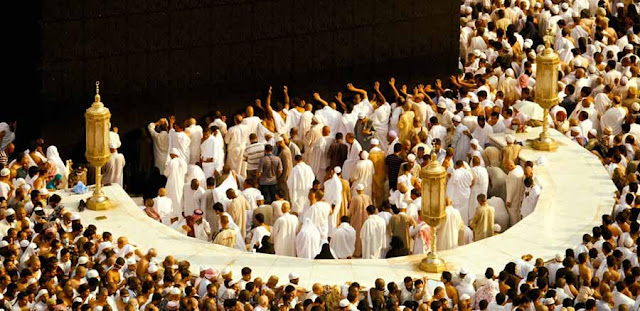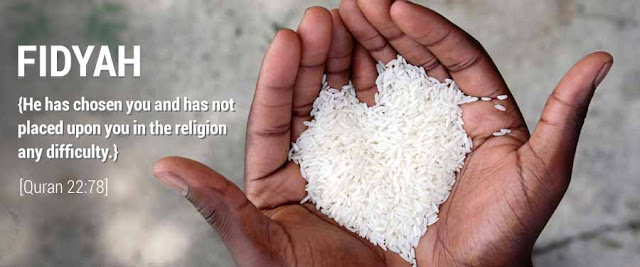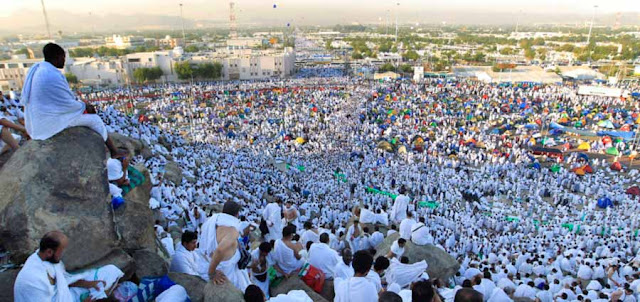image by: saudigazette
Hijab: More than a headscarf
The hijab is the distinguished mark of a Muslim woman. Wearing the hijab is an act of faith; it is an act of worship, as Allah has commanded women to cover their bodies and hair, and to not reveal their beauty to strange men (men whom they can marry).
Contrary to widespread practices today, it is more than simply wearing a headscarf or putting an abaya on. There is more to the hijab than that. In recent years, we see women cloaked in an abaya, but they still lack the requirements of what the hijab should entail.
Many of us women, sometimes unintentionally, make hijab mistakes that could be avoided. Today’s article is a quick hijab recap, to make sure that we reconnect to our Islamic teachings and to make sure that our hijab is fulfilling its purpose and that we are gaining the highest rewards from Allah.
Makeup: Women put makeup on to amplify their beauty. Wearing makeup at home or in social gatherings in the presence of women or male relatives whom she cannot marry is not forbidden in Islam. However, wearing makeup when going out in public defies the purpose of the hijab, which is to not put our beauty on display. We should re-think our habits; I have seen young women in the mall with the full works: thick eyeliner, fake eyelashes, eye shadow, and glistening red lipstick while wearing the hijab!
Tight clothing: Whether it is clothes or the abaya, it should not be tight, in that it clings to the body and defines the body’s shape. Women should dress in loosely fitting clothing that cover her full body, revealing only the face and hands. And even when covered, the clothing should not be tight around a woman’s natural curves; breasts, waist, hips, legs.
Tight pants and a short shirt: The trend to wear skin-tight jeans or leggings with a top that barely covers the waist and stomach is in contradiction with the proper hijab. The ideal hijab is an abaya or jelbab (long coat-like dress). Second best is probably a long skirt with a blouse. If it is more convenient to wear pants because of your work or lifestyle, then choose, wide baggy pants, and wear a shirt that reaches down to your knees. That guarantees that you are not flaunting your body. It also guarantees your rewards from Allah, which is why we are wearing the hijab in the first place- for Allah to be pleased with us. We believe that following Allah’s commands and enduring some restrictions in this life is worth it because we are aiming towards a higher goal: Paradise which is as broad and spacious as the skies and land.
Leaving the neck exposed: There is a new fashion that seems to be in style these days, women wearing a wrap around their hair but leaving their neck and ears uncovered. This is incorrect because it breaks one of the conditions of the hijab, to cover all the body except for the face and hands.
Flashy colors: The hijab or the abaya does not necessarily have to be solid black. Although there is no color that is strictly speaking forbidden in Islam, the hijab should not be in striking colors that draw attention to the woman like iron to a magnet. For example, fiery red or dazzling golden or very bold and attractive patterns should not be worn as part of the hijab. Apart from these restrictions, when worn with modesty, there are several options that make good colors for hijab, such as blue, grey, beige, brown, plum, or cream color.
Thin, transparent material: The clothes and headscarf should not be transparent that it reveals the color of a woman’s skin or exposes her hair or body in any way.
Bare arms: The abaya fashion industry is producing abayas that are good at covering the body, but many of them have an overlooked flaw: the sleeves are flowing and they are not fastened at the wrists. When a woman lifts her arm at the supermarket to reach for an item on a high shelf, her entire arm is revealed. I learned a nice trick that helps; I ask a tailor to attach small snaps to the bottom of the sleeves of my abayas.
Jewel studded sandals, pedicured and painted toenails: The feet are part of the body which should also be covered, that includes the ankles, tops of feet, and toes. When selecting shoes to walk around in the mall, grocery store, park, or seaside, the shoes be the closed type, and worn with socks. There are plenty of stylish shoes to choose from that would look nice with the hijab attire. Sandals, slippers, and flip-flops are not the suitable footwear for hijab.
Perfume: When a woman wearing strong perfume walks in a store and her beautiful fragrance drifts around her, she is definitely turning heads and attracting people. Again, this goes against the purpose of hijab. The sense of smell is actually the most sensitive of all the senses. Using perfume and scented oils is encouraged to please your husband, but is prohibited to be worn where there will be strange (non-mahram) men.
Too ostentatious or too shabby: Some abayas have sparkling beads and sequences that look too extravagant. The ruling for both men and women on their dress is that it should not be showy because this could lead to arrogance. At the same time, a woman’s abaya should not look ugly, ragged, old, and frayed. The hijab dress should be modest, but at the same time it should be decent, presentable, tidy, and nice. The idea is that you wear your hijab with modesty, but you also should feel confident and good about yourself.
Article by: saudigazette.com.sa











